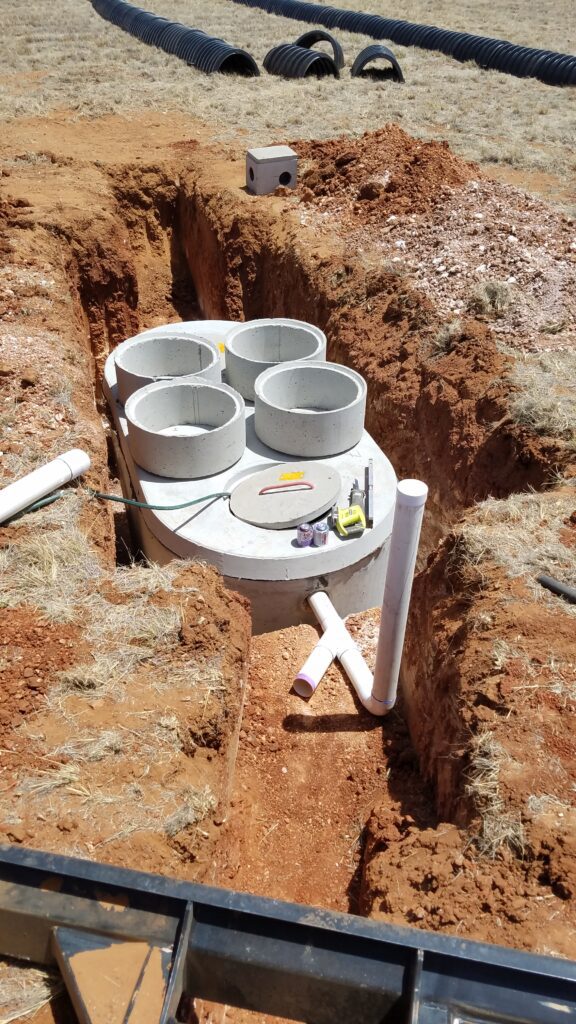Are you curious about how to keep your septic system in tip-top shape? You’re in the right place! We’re diving into one of the most crucial aspects of home maintenance — understanding your septic tank. It’s a topic that might not be the talk of the town, but it’s super important for your home’s health and the environment.
So, let’s unravel the mysteries of septic tanks together! From the ins and outs of how a septic system works to the nitty-gritty of septic tank pumping, we’ve got it all covered.
What Is a Septic System and How Does It Work?
A septic system is an underground wastewater treatment structure commonly used in rural areas that lack centralized sewer systems. It consists of a septic tank and a drain field. The system works by treating waste material from your household wastewater, which includes everything from your toilet, kitchen sink, washing machine, and more.
Key Components of a Septic System
- Septic Tank: The primary component where the initial treatment of waste occurs. Solid waste settles at the bottom, forming sludge, while fats and oils rise to the top creating a scum layer.
- Drain Field: The treated wastewater, or effluent, flows from the septic tank into the drain field. Here, the effluent percolates into the soil, undergoing further natural treatment.
Understanding Sludge and Scum Levels in Your Septic Tank
Over time, sludge and scum levels in your septic tank build up. These materials need to be pumped out to prevent the system from backing up or damaging the environment. Regular monitoring of sludge and scum levels is vital to determine when your tank should be pumped.
Frequency of Septic Tank Pumping
The Environmental Protection Agency (EPA) suggests that the average septic system should be inspected at least every three years by a septic service professional and the septic tank pumped as necessary, typically every three to five years. Several factors influence this frequency:
- Septic Tank Size: Larger tanks can hold more sludge and might not need to be pumped as frequently.
- Household Size and Water Usage: More residents imply more waste and wastewater, necessitating more frequent pumping.
- Total Wastewater Generated: This includes all water from showers, toilets, washing machines, and dishwashers.
- Volume of Solids in Wastewater: If your household tends to use a garbage disposal, it can increase the amount of solids in the tank, leading to the need for more frequent pumping.
How Septic Tanks are Pumped
Septic tank pumping involves removing all the liquid waste, scum, and sludge from the tank. This process requires specialized equipment and should be carried out by a professional septic service.
The Role of Maintenance in Septic System Health
Routine maintenance, including regular pumping, is essential for the health of your septic system. It prevents the buildup of harmful bacteria and too much sludge, which can damage the tank and drain field.
Impact of Household Habits on Septic System
Your daily activities can significantly impact the septic system. Here are some aspects to consider:
- Use of Garbage Disposals: Frequent use can increase the amount of solids in the tank, affecting how much wastewater it can handle.
- Washing Machine Use: Proper load size and efficient water use can reduce the strain on your septic system.
- Toilet Paper and Household Waste: Flushing only biodegradable waste and using environmentally friendly toilet paper can prevent blockages.
- Water Usage: Installing shower flow restrictors and practicing efficient water use can reduce the volume of wastewater that the septic system must treat.
Common Problems and Solutions in Septic Systems
- Overloading the Tank: Avoid excessive water use and practice proper load size in washing machines to prevent overloading the septic tank.
- Blockages: Regularly clean the septic tank filter to prevent blockages and catch synthetic fibers or other materials.
- Mechanical Failures: Components like electrical float switches need periodic checks to ensure they function correctly.
Professional Septic Services and Why They Matter
A professional septic service in Tucson, AZ, such as Rite Way, plays a crucial role in maintaining your septic system. We offer expertise in septic pumping, routine maintenance, and can address frequent questions related to septic care.
Rite Way: Your Go-To for Septic Services
Choosing a reliable septic service professional is crucial for the health of your septic system. Rite Way offers comprehensive septic services, ensuring that your system works efficiently and effectively. Our team of experts can guide you on how often your tank should be pumped, based on your specific needs and usage patterns.
Get Your Septic Tank Pumped Today!
Understanding how often you should pump a septic tank is vital for maintaining a healthy septic system and preventing environmental hazards. Regular pumping, coupled with mindful household practices, ensures the longevity and efficiency of your system.
If you’re uncertain about the condition of your septic tank or when it was last serviced, contact Rite Way for professional septic services in Tucson, AZ. Remember, proactive maintenance is key to a hassle-free septic system.

